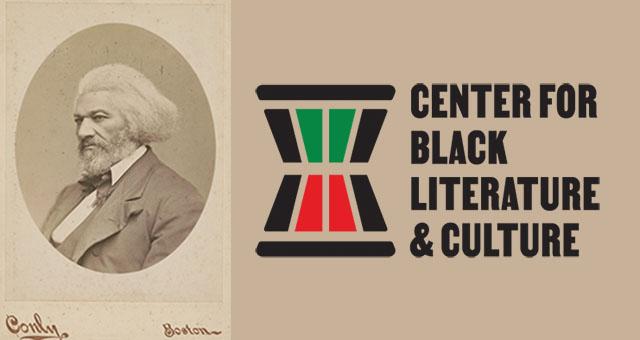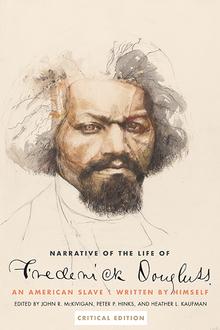
Hoosiers Reading Frederick Douglass Together
The Massachusetts Foundation for the Humanities started the program, Reading Frederick Douglass Together, to encourage families, friends, neighbors, and co-workers to gather to read and discuss “What to the Slave is the Fourth of July?” by Frederick Douglas to help shape our understanding of freedom in American.
Douglass first gave the speech on July 5, 1852 at an event commemorating the signing of the Declaration of Independence. Abraham Lincoln would not issue the Emancipation Proclamation until 1863 and the 13th amendment that freed enslaved people did not pass until 1865, so he delivered this speech well before either of those milestones. His words in The Meaning of July 4th for the Negro, continue to resonate with Black citizens after more than 150 years for pointing out at the time that not all were free. The speech says in part,
“This Fourth of July is yours, not mine. You may rejoice, I must mourn.” And he asked them, “Do you mean, citizens, to mock me, by asking me to speak to-day?”
Resources
If you are unable to attend a reading, you can find the text here. There is a printable tip sheet, discussion guide, and page of helpful resources. In addition, we invite you to explore Indiana University School of Liberal Arts’ Frederick Douglas Papers or watch this short video of five descendants of Frederick Douglass read excerpts from his famous speech which asks all people to consider America’s long history of denying equal rights to Black Americans.
Frederick Douglass was born into slavery in 1818 but then grew up to became a human rights activist, gifted public speaker and author. He also started a newspaper, was a U.S. Marshal, and at the 1888 Republican National Convention became the first African American to receive a vote for President of the United States at a major party’s convention. (Benjamin Harrison, from Indianapolis, went on to win the presidency in 1889.) He lectured on civil rights and abolition and also supported Elizabeth Cady Stanton, Sojourner Truth, and Susan B. Anthony in their fight for women’s suffrage. He published his first autobiography (he wrote three altogether) called Narrative of the Life of Frederick Douglass, an American Slave in 1845. It it the first hand account of his childhood as a slave. You can read it here.
More Reading:
- National Museum of African American History & Culture: Our American Story – Frederick Douglass
- National Underground Railroad Freedom Center: Frederick Douglass
- IUPUI: The Frederick Douglass Papers This collection, held at Indianapolis’ own IUPUI, collects, edits, and publishes the speeches, letters, autobiographies, and other writings of Frederick Douglass. Their website can help people just starting to learn about Frederick Douglass as well as those wanting to dig deeper and explore thousands of documents from his lifetime.
- Library of Congress: Frederick Douglass Papers This is another collection of Douglass documents. It includes a diary about a trip he took to Europe and many other writings about racial prejudice, civil rights, and prison reform.
- Smithsonian Article June 30, 2020: What Frederick Douglass Had to Say About Monuments
- The Frederick Douglass Book Prize is an annual award given to the most outstanding non-fiction book on the subject of slavery, resistance, and abolition. The 2020 winner has not been announced yet but here are three recent winners: Embattled Freedom: Journeys through the Civil War’s Slave Refugee Camps by Amy Murrell Taylor, 2018 Never Caught: The Washingtons’ Relentless Pursuit of Their Runaway Slave, Ona Judge by Erica Armstrong Dunbar The Dawn of Detroit: A Chronicle of Slavery and Freedom in the City of the Straits by Tiya Miles.
Visit the Center for Black Literature & Culture at Central Library to find and check out books that affirm and celebrate the Black experience.
The CBLC includes a section just for kids. Every book taken off the shelf, both fiction and non-fiction, features Black characters or historical and contemporary people that highlight the Black experience, history, or biography.

The Central Authors Engraving Project – Frederick Douglass
Frederick Douglass (1817-1895) was an extraordinary leader and abolitionist who escaped slavery to become one of the greatest orators in modern history and was instrumental in the emancipation of slaves in the United States. Check out the items on the following list by or about Dougalss to learn more about this great man.
